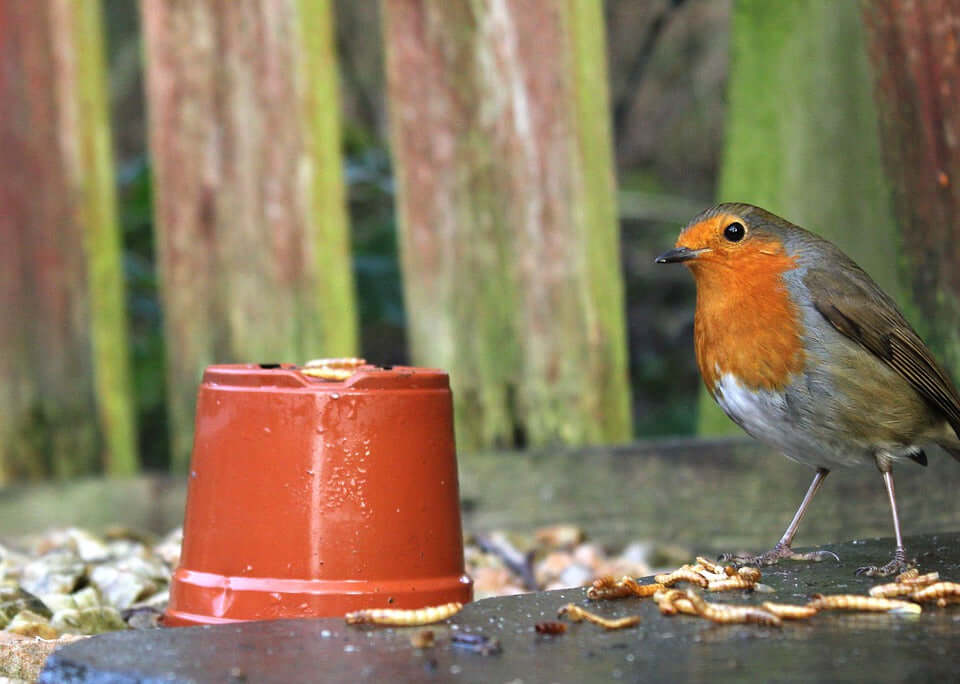
Mealworms for birds
Share
Mealworms, whether live or dried are one of the most important things you can feed to your garden birds at any time of the year.
Mealworms are the larvae form of the Tenebrio molitor, a species of the darkling beetle. So, mealworms aren’t worms at all, and are thought to have been named 'worm' because of their wormlike appearance.
There are many benefits to feeding mealworms to garden birds. Due to urban expansion and the loss of green habitats, which are the natural places for birds to try and search for food, invertebrates are increasingly rare. Even in the countryside invertebrate numbers are in decline due to pollution, climate change and the use of pesticides.
You may ask when the best time is to feed mealworms to garden birds. Undoubtably the breeding and fledgling season is the prime time, but adult birds will always benefit. Mealworms are packed with protein and more importantly moisture. The only liquid that nestlings get is from their parents, so mealworms are a big help in their survival.

If we have a long, hot summer then dry weather and low rainfall makes it difficult for ground feeding birds like blackbirds and wrens to find their natural food. Earthworms will be well below ground level in damper soil - just another great reason to start feeding mealworms.
Live mealworms are best fed in a dish with sides to prevent the mealworms from crawling out. The Robin & Small Bird Feeder is ideal for both dried mealworms and live mealworms and will hang from a tree or branch. However, it is equally important for ground feeding birds to have access to the mealworms so a shallow dish with sides around 5cm high, preferably with drainage holes, would work well. We would advise putting out a small number of live mealworms every few hours purely to manage supply and demand.
Live mealworms should be stored in a cool, dry, dark place to stop the growth of the larvae. Customers have been known to store them in the fridge, but a cool shed or outbuilding will suffice – but certainly no cooler than 5’C.
For the squeamish amongst you then Dried Mealworms are a very suitable alternative. They still contain traces of fat, protein and fibre that are present in live mealworms but are more convenient and easier to store. Dried Mealworms do need re-hydrating before feeding, usually for around 30 minutes, unless you are mixing them with seed.
Mealworms, whether live or dried, are very worthwhile feeding to garden birds. They are loved by blackbirds, robins, wrens, sparrows, and members of the tit family. Mealworms are a great food for birds, have many health benefits and encourage a birds natural foraging habit. All in all, a very nutritious way of feeding your garden birds.
Written by Angela

